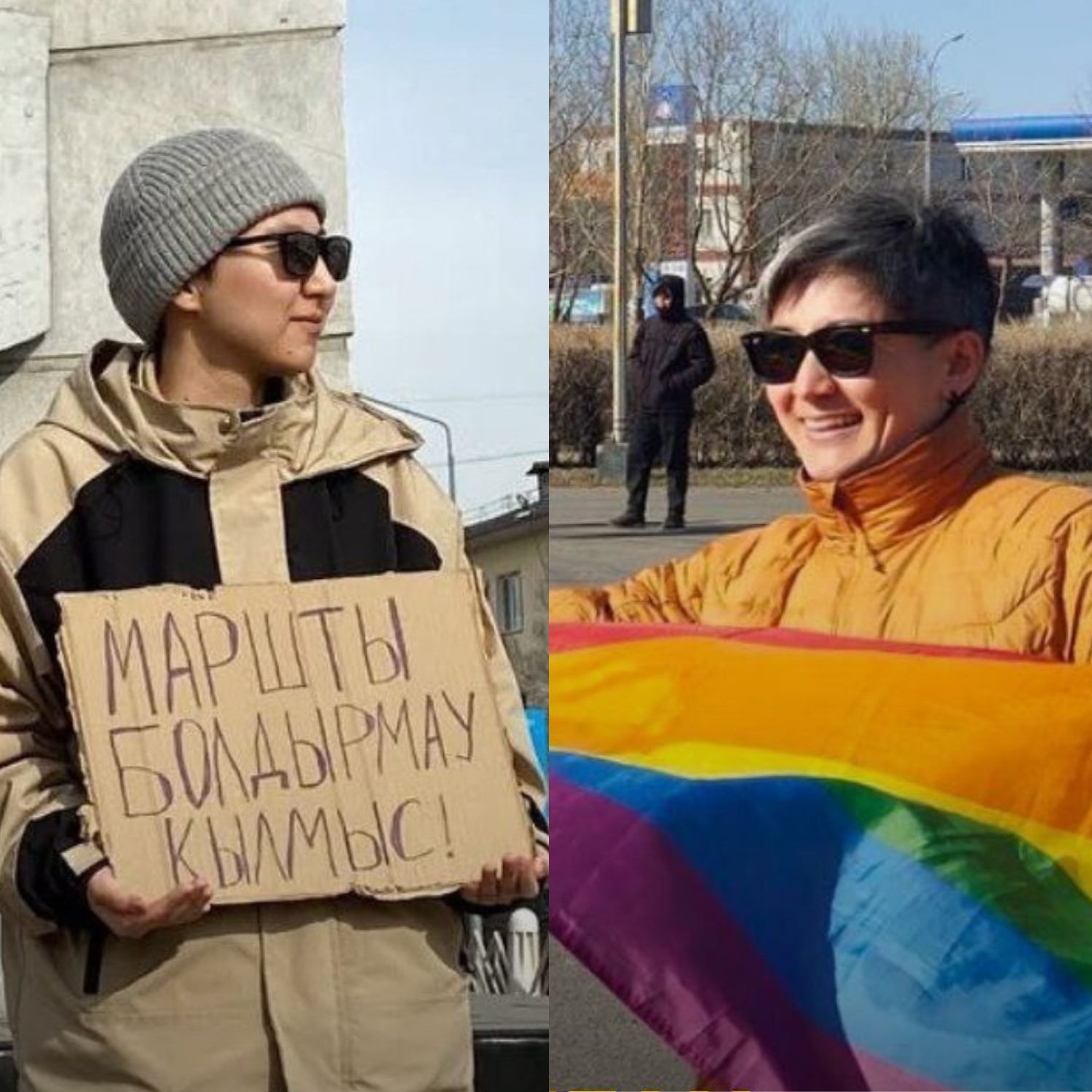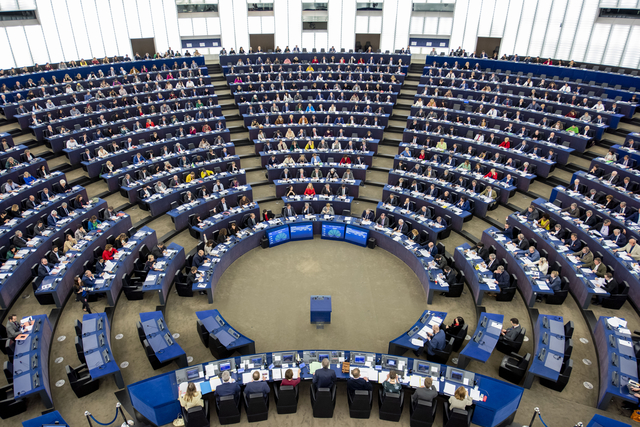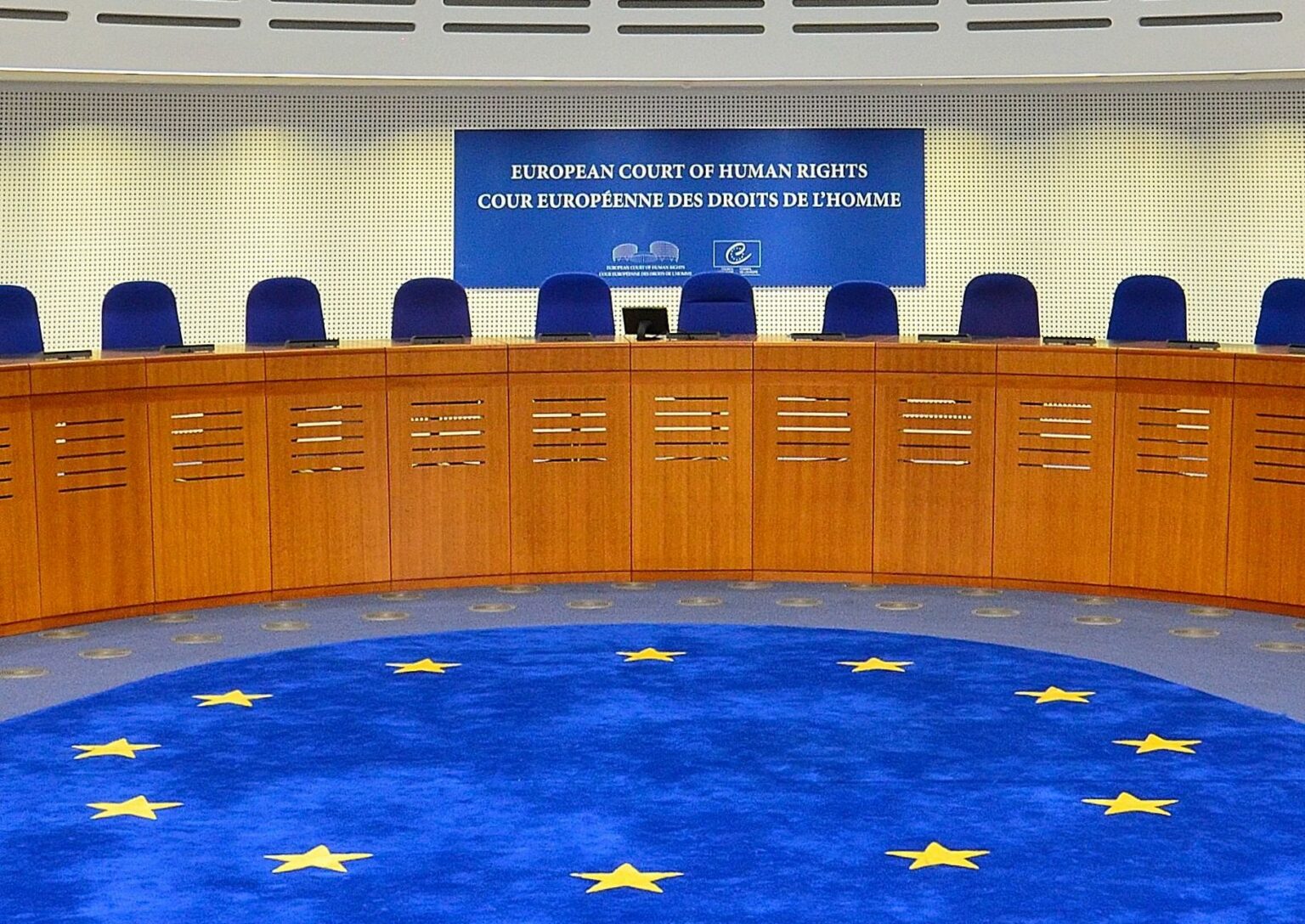Statement: ILGA-Europe Condemns Escalating Repression of Civil Society in Kazakhstan

Call for Immediate Release of Detained Activists and an End to Arbitrary Persecution
ILGA-Europe strongly condemns the escalating repression and intimidation of civil society in Kazakhstan, exemplified by the recent detention of Zhanar Sekerbayeva and Aktorgyn Akkenzhebalasy – activists from Feminita, an informal LBTQ civil society initiative. Their arbitrary arrests and rushed sentencing to 10 days of administrative detention for a peaceful protest in 2024 mark yet another attack on fundamental freedoms.
These are not an isolated incident. It is part of a broader pattern of persecution, including arrests, fines, physical attacks, police raids, and legislative proposals designed to stifle legitimate civil society organisations advocating for equality—whether for women, LGBT individuals, or other marginalised groups. These particular arrests follow a recent unpunished violent attack on Feminita’s community event and another court decision to fine its activist, Gulzada Serzhan, for “managing an unregistered public association”. Activists anticipate further arrests ahead of Women’s Day demonstrations on 8 March.
We stand in full solidarity with LGBTI and wider civil society in Kazakhstan, who are facing an alarming crackdown on their rights and safety. Reminding the government of Kazakhstan of its international legal obligation to respect the peaceful expression of opinions, we call for the immediate release of detained activists, including Zhanar Sekerbayeva and Aktorgyn Akkenzhebalasy, an end to arbitrary prosecutions, and accountability for those enabling and perpetrating these repressions. We will be working with EU institutions to ensure that the respect for fundamental rights and freedoms, including freedom of assembly, is an integral part of relations with Kazakhstan.
European Parliament backs call for civil society supports in the EU

This morning, 489 MEPs voted in favour of an instrument to support civil society organisations which promote democracy, rule of law and fundamental rights.
Over 500 LGBTI organisations are members of our ILGA-Europe family – and the message coming from many of them for the past few years has been undeniable. Their work is getting harder, much harder.
Their ability to organise events with their local LGBTI community, as well as working in alliances for human rights and the rule of law in their countries, is reducing.
This is happening all over Europe – it’s not a problem that only exists outside the EU. We repeat: this is problem for the EU too.
And it’s not just ILGA-Europe who have observed this phenomenon – in January 2018, the FRA’s new report recognised shrinking space at an institutional level for the first time and said it needed to be urgently addressed.
One very practical way to better support civil society groups who are experiencing obstacles (whether direct or indirectly) is more flexible funding. There are several great mechanisms available for human rights defenders reworking outside the EU’s borders, including from DG NEAR and DG Devco – but nothing similar for EU-based civil society to turn to.
That is why ILGA-Europe is delighted to see that MEPs in Strasbourg today in a resolution clearly call for a funding mechanism for human rights organisations working in the EU. The European Parliament has shown that it understands the realities faced by activists working to create positive change in their communities. I
In her intervention in the debate in plenary on Tuesday, Commissioner Jourova also voiced her support for such an instrument and it is now up to the European Commission to include a European Values Instrument in its proposal for the next Multi-annual Financial Framework (or MFF). Such an instrument should allow for direct support for national organisations working on human rights and democracy in a flexible manner.
Ban on LGBTI events in Ankara must be overturned

The ban on events organised by LGBTI organisations, as announced by the Ankara Governor’s Office last weekend (18-19 November 2017), is disturbing and a clear breach of fundamental freedoms and human rights.
The fact that events organised by LGBTI organisations are being targeted in this way is very unnerving. The public events they are organising are a vital outlet for LGBTI people living in the city. The LGBTI community are an integral part of society in Ankara and deserve to be protected by the local authorities.
The official statement cited public security, public order, public health and morality concerns as reasons to ban activities being organised by LGBTI groups.
The governor’s office stated that events such as film screenings, plays and exhibitions on LGBTI issues could cause “reactions and provocations against the groups and individuals taking part in the organization due to certain social sensibilities”.
These LGBTI events should be protected against any potential security threats, not dismissed in such a way. Several LGBTI organisations in Turkey have already called the ban unconstitutional and illegal and the Council of Europe’s Commissioner for Human Rights said today that “such a blanket ban clearly disregards Turkey’s international human rights obligations, notably under the European Convention on Human Rights”.
The ban also appears to be open-ended, with no clear end date being specified in the official statement from the governor’s office. This indefinite time period is yet another example of how civil society in Turkey is being prevented from functioning effectively.
ILGA-Europe are calling on the authorities in Ankara to rescind this disgraceful ban, and instead devote their energy to protecting the right to freedom of assembly and association of civil society groups.
- Turkey currently sits at 46th place in the Rainbow Europe ranking on law and policy.
- The Governor’s Office statement announcing the ban is available here.
- The announcement has been translated to English here.
Association Accept and Others v Romania

Rights to freedom of association, privacy and freedom from discrimination
(Application no. 48301/08), November 2013
Find Court’s decision here. (Inadmissibility)
- This present case arises from the requirement by the authorities that ACCEPT Association (“ACCEPT”) provide details of its new members (inter alia name, profession, and home address) for publication in the special register of associations and foundations. ACCEPT’s objective is to promote the rights of lesbian, gay, bisexual and transgender persons in Romania.
- ILGA-Europe and partners submitted the following:
- Members of the LGBTI community, and particularly LGBTI human rights defenders, may be at risk of hate motivated violence and other forms of discrimination in Council of Europe member states, and therefore have sound reasons for wishing to protect their privacy.
- International and comparative precedents protect the rights to freedom of association, privacy and freedom from discrimination of members of human rights organisations.
- The Court delivered inadmissibility decision on 24 May 2016.